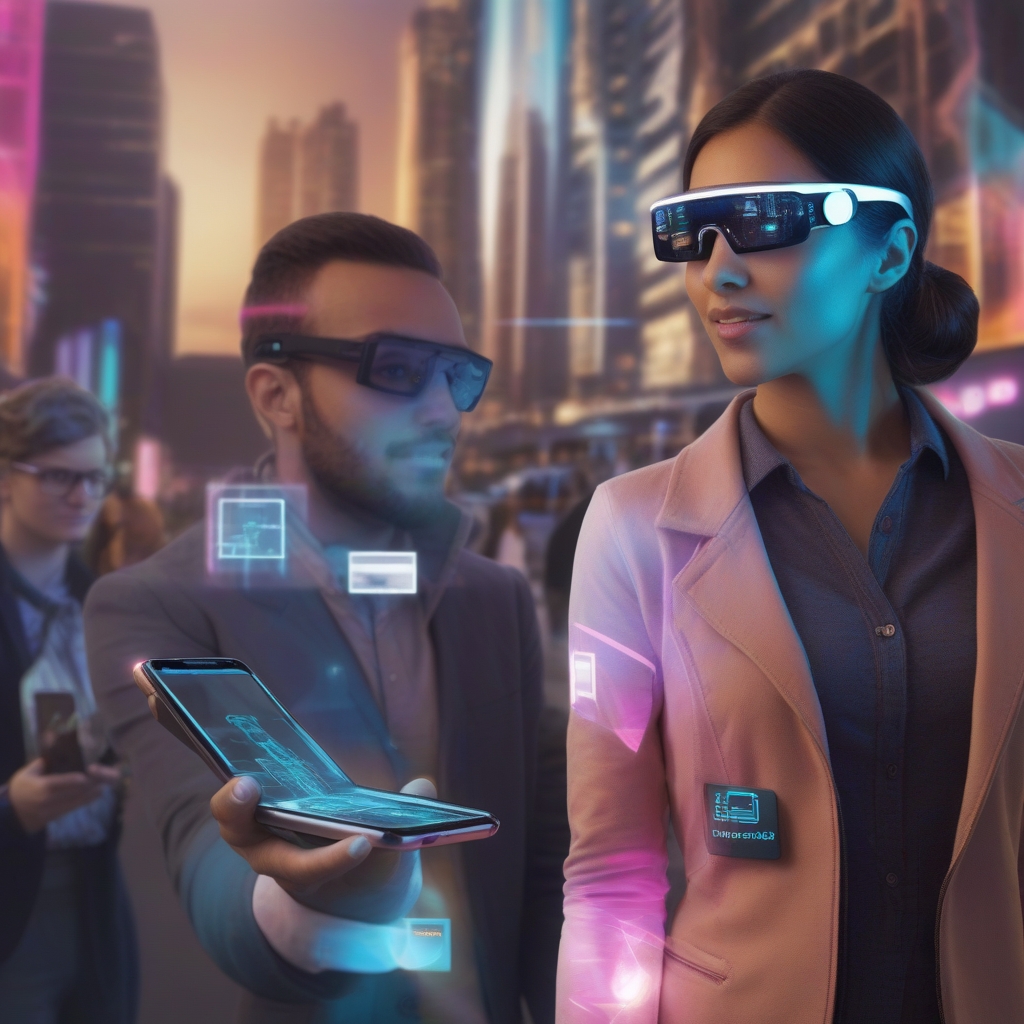In the ever-evolving world of technology, Meta, formerly known as Facebook, has set its sights on a new frontier: augmented reality (AR). With the release of their Meta Orion Glasses, the company is poised to make a significant impact. Will this venture be a second chance for Meta after its missed opportunities in the smartphone market? Let’s delve into the details.
The Rise of Augmented Reality
Augmented reality is transforming the tech landscape. Unlike virtual reality, where users are completely immersed in a digital environment, AR overlays digital content onto the real world. This blending of physical and digital realms opens up endless possibilities for applications in gaming, navigation, communication, and even professional industries like healthcare and engineering.
Meta Orion Glasses: A New Horizon
Meta’s latest innovation, the Orion Glasses, marks the company’s leap into the AR space. Designed under the stewardship of CEO Mark Zuckerberg, these glasses promise to revolutionize how we interact with the world and each other.
Features of Meta Orion Glasses
The Meta Orion Glasses boast an array of cutting-edge features:
- Advanced Optics: The glasses offer high-definition displays that seamlessly blend digital content with the real world.
- AI Integration: Built-in artificial intelligence provides smart suggestions and real-time information based on the user’s context.
- Gesture Control: Intuitive controls allow users to interact with AR elements using hand gestures.
- Connectivity: These glasses are designed to sync with a variety of devices, ensuring a smooth and integrated user experience.
- Lightweight Design: Fashion meets function with a sleek, lightweight design making the Orion Glasses comfortable for everyday wear.
Meta’s Missed Opportunity in Smartphones
To truly appreciate Meta’s gambit with AR glasses, it is important to understand their history with smartphones. Despite Facebook’s prowess in digital communication, the company never made its mark in the hardware space, particularly in the smartphone industry.
Facebook’s Smartphone Efforts
Facebook’s attempts to enter the smartphone market were fraught with challenges:
- Facebook Phone: The company’s partnership with HTC to introduce a “Facebook Phone” failed to garner significant consumer interest.
- Facebook Home: A venture to launch Facebook’s custom Android launcher also met with lukewarm reception.
- Inability to Compete: Established players like Apple and Samsung dominated the market, leaving little room for new entrants.
Why Augmented Reality Holds Promise for Meta
Despite past missteps, several factors make the Orion Glasses a promising venture for Meta.
Strategic Timing
The AR space is still in its nascent stages, giving Meta a unique opportunity to establish itself as a pioneer. Unlike the saturated smartphone market, AR presents a relatively open field.
Synergy with Meta’s Ecosystem
Meta’s vast social media platforms, including Facebook, Instagram, and WhatsApp, can be seamlessly integrated with the Orion Glasses. This synergy ensures an enriched user experience where people can connect, share, and interact in unprecedented ways.
Targeting a Diverse Audience
AR technology appeals to a broad spectrum of users, from gamers and tech enthusiasts to professionals in various fields. By catering to this diverse audience, Meta can expand its user base and drive adoption.
Challenges Ahead
However, the road to widespread adoption of AR glasses is fraught with challenges that Meta must overcome.
Technical Hurdles
- Battery Life: Ensuring prolonged battery life without compromising on performance remains a significant technical challenge.
- Privacy Concerns: As AR glasses capture and process real-world data in real-time, ensuring user privacy and data security is paramount.
- Software Compatibility: The success of AR glasses depends heavily on a robust ecosystem of apps and services, which requires extensive collaboration with developers.
Market Acceptance
Convincing consumers to adopt a new technology is no small feat. Meta needs to invest in educating the market and demonstrating the real-world benefits of AR glasses.
Price Point
The initial cost of AR technology can be a barrier to entry for many consumers. Meta must strike a balance between advanced features and affordability to attract a broad user base.
The Future of Meta Orion Glasses
The launch of Meta Orion Glasses signifies more than just a new product line for the company. It embodies Meta’s vision for the future—a future where digital and physical worlds converge. If successful, these glasses could redefine how we interact with technology and with each other.
Potential Impact on Various Industries
The Meta Orion Glasses have the potential to revolutionize several industries:
- Education: AR can provide interactive learning experiences, making education more engaging and effective.
- Healthcare: Medical professionals can use AR for enhanced diagnostics, surgery simulations, and patient education.
- Retail: AR promises personalized shopping experiences, allowing customers to try on clothes virtually or visualize products in their homes before purchase.
- Entertainment: From immersive gaming to live concerts, the possibilities for entertainment are virtually limitless.
Conclusion
Meta’s foray into augmented reality with the Orion Glasses is not just a second chance—it’s an ambitious leap into a future where digital integration becomes second nature. While challenges abound, the potential for transformative impact is immense. As Meta strives to make its mark in the AR space, only time will tell if the Orion Glasses will become a staple in our daily lives, much like the smartphones that came before them.

Leave a Reply